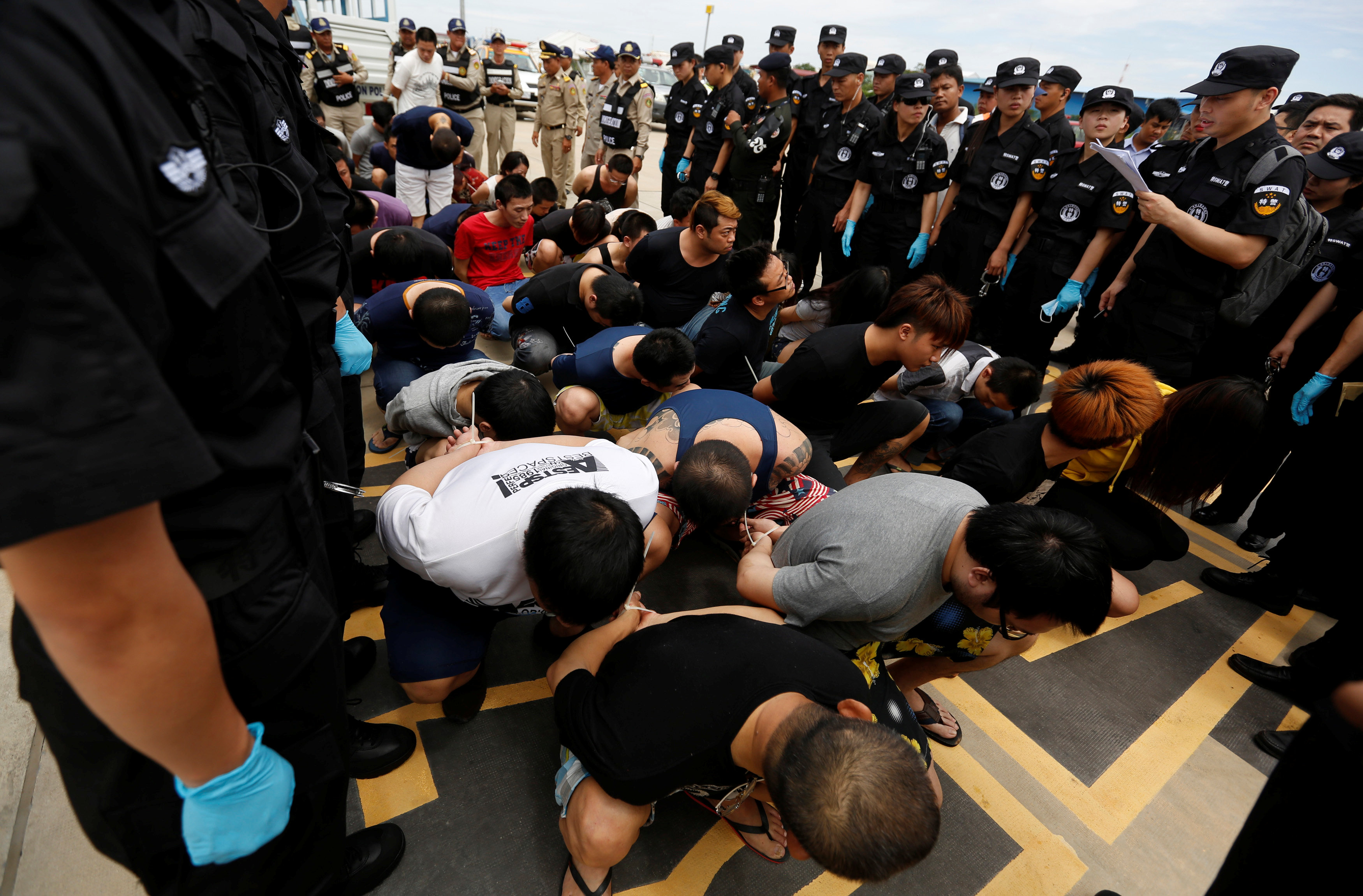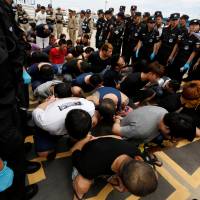China needs to "narrow its differences" with Western countries where corrupt officials have fled and seek their support, the country's top graft watchdog said, as Beijing seeks to address worries about rule of law and transparency in corruption probes.
China has sought to boost international cooperation in its campaign to track down officials and business executives suspected of corruption who have fled abroad.
But Western nations have been reluctant to sign extradition treaties with China, where mistreatment of criminal suspects remains a problem, and courts are not independent of the ruling Communist Party. They say China often provides insufficient proof of suspects' crimes.
The Central Commission for Discipline Inspection noted in an online statement late on Sunday that China's extradition treaties and criminal judicial assistance programmes were mostly with developing countries, but corrupt officials tended to flee to developed Western countries.
"We must strengthen our coordination and cooperation with the countries where corrupt elements flee, clearly express our ideas, narrow differences, seek support, and reject the provision of havens for corrupt elements," it said.
Chinese President Xi Jinping has waged a years-long campaign against graft that has felled hundreds of officials at all levels of government, including many of his top political rivals.
Earlier this month, the CCDI, which is an arm of the ruling Communist Party, condemned "some people" who protect corrupt officials in the name of human rights, but did not name the targets of its ire.
Last week, a woman on China's list of 100 most wanted corruption suspects abroad voluntarily returned to China from Australia, the government said, while Beijing also announced a new list of departments to be visited by graft inspectors.
China has tried persuasion to get people back from countries like Canada and the United States, where many graft suspects have gone.
Beijing's graft-fighting Central Commission for Discipline Inspection said in a brief statement late on Wednesday Tang Gongmei had "surrendered" and returned to China from Australia, where she fled to in 2008.
Tang, 56, was an accountant at an arts and crafts trading company in the southeastern province of Fujian and is wanted for corruption, the watchdog said. It gave no details on the crimes she is suspected of or how she came to give herself up.
The government unveiled an initiative called "Sky Net" last year to coordinate its fight to return corrupt officials and published the list of suspects subject to an Interpol red notice — the closest instrument to an international arrest warrant.
The graft watchdog also said China's next round of anti-corruption inspections would focus on 32 bodies, including the country's largely rubber stamp parliament, and the public security, foreign and finance ministries.
The housing ministry, National Audit Office, the Communist Party's international department and a party group that handles the fight against what the government calls cults would also be inspected, it said.
Antigraft teams have fanned out across China in the past three years, although few details have emerged of wrongdoing that has been uncovered.


















With your current subscription plan you can comment on stories. However, before writing your first comment, please create a display name in the Profile section of your subscriber account page.